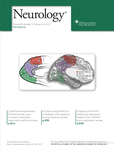

Most researchers by now recognize there’s a reproducibility crisis facing science. But what to do about it? Today in Nature, Jeffrey S. Mogil at McGill University and Malcolm R. Macleod at the University of Edinburgh propose a new approach: Restructure the reporting of preclinical research to include an extra “confirmatory study” performed by an independent lab, which verifies the findings before they are published. We spoke with them about how this could work.
Retraction Watch: You’re proposing to restructure animal studies of new therapies or ways to prevent disease. Can you explain what this new type of study should look like, and how researchers will execute it?
Continue reading A new reproducibility fix? Get your work checked before it’s published
 A researcher in Switzerland has retracted her 2015 paper in the Journal of Cell Biology, saying the first author — her former postdoc — admitted to fabricating multiple aspects of the paper.
A researcher in Switzerland has retracted her 2015 paper in the Journal of Cell Biology, saying the first author — her former postdoc — admitted to fabricating multiple aspects of the paper.

 Neurology has partially retracted a 2016 paper, replacing a figure and removing the author who contributed it
Neurology has partially retracted a 2016 paper, replacing a figure and removing the author who contributed it 

 The notices keep coming for diabetes researcher
The notices keep coming for diabetes researcher 
 A journal has retracted a 2012 paper after the last author was unable to provide material to support the results presented in multiple figures.
A journal has retracted a 2012 paper after the last author was unable to provide material to support the results presented in multiple figures.